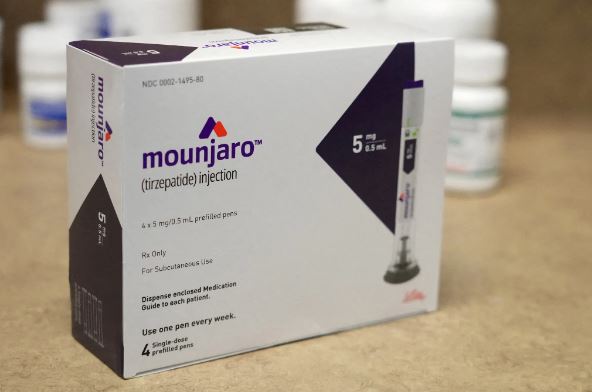The Food and Drug Administration gave the green light to Eli Lilly’s obesity drug, Zepbound, on Wednesday, positioning it as a direct competitor to the popular Wegovy. Touted as a transformative medication in the obesity landscape, tirzepatide, sold under the name Zepbound, offers a new approach to addressing the condition affecting around 100 million American adults. Associated with various health issues such as diabetes, heart disease, sleep apnea, liver disease, kidney disease, and joint pain, obesity has become a significant public health concern.
In clinical trials, patients using tirzepatide experienced an average weight loss of 18%, surpassing the 15% achieved with Wegovy, produced by Novo Nordisk. The FDA approved Zepbound for individuals with obesity and those who are overweight and have at least one obesity-related condition.
Tirzepatide, initially approved for diabetes under the name Mounjaro, competes with Novo Nordisk’s diabetes drug semaglutide, known as Ozempic. However, Wegovy was previously the sole approved drug capable of inducing substantial weight loss in individuals with obesity alone.
Similar to Wegovy, Ozempic, and Mounjaro, Zepbound’s side effects are primarily gastrointestinal, including nausea and diarrhea. The FDA’s approval of Zepbound addresses an unmet medical need, considering the rising rates of obesity and overweight in the United States.
The approval comes at a time when Novo Nordisk faces challenges in meeting the high demand for Wegovy. Given that patients self-administer Zepbound through a weekly injection, similar to Wegovy, it could potentially alleviate shortages of the latter.
Competition between Zepbound and Wegovy may also lead to lower net prices for both drugs. Currently, Wegovy’s prices are high, with a list price of up to $1,349 every four weeks, and a net price around $700. Zepbound enters the market with a list price of approximately $1,060, offering potential cost savings.
The development of Zepbound began in 2017, with a small study involving 300 people with type 2 diabetes. Results showed significant weight loss, sparking interest in the drug’s potential. Eli Lilly then conducted a large 72-week study of tirzepatide in 2,539 people with obesity, revealing that more than half of those receiving the highest dose lost at least 20% of their body weight—a remarkable achievement in weight loss medication.
For Eli Lilly, the approval of Zepbound represents the culmination of a decade-long research journey that initially focused on developing a new diabetes drug. The company’s scientists combined molecules mimicking GLP-1 and GIP, resulting in a two-drug combination that not only lowered blood sugar but also produced significant weight loss.
Despite initial reservations about the commercial potential of addressing obesity, Eli Lilly recognized the transformative impact of tirzepatide and shifted its focus. With Zepbound’s approval, Eli Lilly aims to reduce the risk of obesity-related complications, potentially changing the landscape of weight loss medications.
However, Zepbound is just the beginning for Eli Lilly, which is exploring more potent drugs. The company is working on a new drug that adds glucagon, another gut hormone, to tirzepatide’s two molecules. This addition aims to stimulate metabolism and draw fat out of the liver. Additionally, Eli Lilly, like other pharmaceutical manufacturers, is developing a pill form of tirzepatide to address supply challenges associated with injectable drugs.
With an estimated one billion people worldwide projected to have obesity by 2030, the need for effective treatments is crucial. Eli Lilly envisions oral drugs as a key solution to meet the demands of the global obesity epidemic, offering a simpler and more cost-effective alternative to injectable medications like Ozempic and Wegovy.
In summary, the FDA’s approval of Zepbound marks a significant development in the obesity treatment landscape, providing individuals with a new option for substantial weight loss. The competition with Wegovy may lead to improved drug availability and potentially lower prices, benefiting patients seeking effective solutions to address obesity and its associated health risks.

